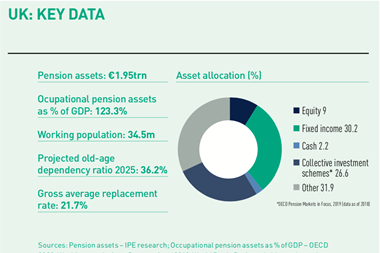Nearly two-thirds of UK listed sponsors of defined benefit (DB) pension schemes issued at least one profit warning during the first nine months of the year, according to analysis from EY.
They issued 228 profit warnings in total, with 48 sponsors issuing one and 123 issuing multiple warnings. The 228 represent 44% of a total of 524 profit warnings across all UK quoted companies, a new annual high.
EY said 90% of the profit warnings from DB sponsors have been COVID-19-related. In the third quarter all 32 profit warnings were linked to the coronavirus pandemic.
Of the total number of listed companies in the UK, 23% (281) have a DB scheme and are concentrated in more traditional industries particularly vulnerable to the current economic climate; 57% of listed companies with a DB scheme sit within industrial and consumer discretionary FTSE sectors, which account for 36% of the total listed market.
The five sectors with the highest number of warnings were: travel and leisure (28), industrial support services (22), construction and materials (18), retailers (16), and household goods and home construction (14).
Gareth Mee, UK Actuarial Leader at EY, said: “The sheer volume of profit warnings issued by companies with a pension scheme in the year to date underlines the market pressures many firms are facing as they work to keep the wheels turning on operations, while also continuing to meet their pension obligations to members.”
Karina Brookes, UK pensions covenant advisory leader at EY, added: “In such a challenging market, it is more important than ever that the strength of the employer covenant and the support available to schemes is raised in all key decision-making.
“At a time of change within the regulatory regime for DB scheme funding, including an increased focus on the role of covenant, headlined by The Pensions Regulator’s new DB funding code and the recent publication of guidance for trustees around the superfund regime, the pensions industry is working together to secure members’ benefits.
“The headwinds facing the sectors where DB schemes are commonly found are acute, and the response from scheme stakeholders must be robust and innovative,” said Brookes. ”In response we expect to see an uptick in covenant-led decision making, as trustees look to improve their pension scheme’s resilience in these uncertain economic times.”
Last week Willis Towers Watson reported that, based on a survey, only one in six pension schemes have said the coronavirus pandemic had done long-term covenant damage, with one in three reporting a negative short-term impact on the employer covenant.
The Pensions Regulator recently said fewer employers had deferred deficit contributions in response to severe cash constraints than had been expected.










